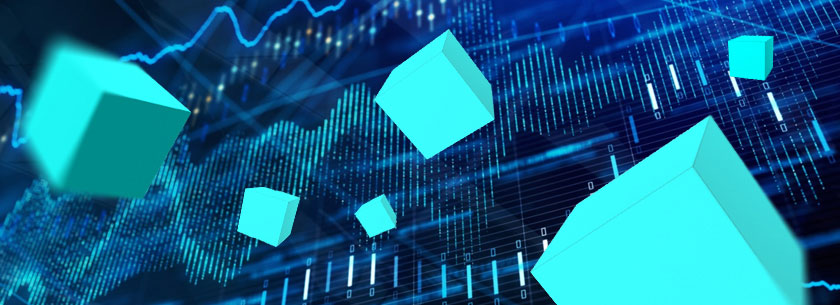
When it comes to "blockchains" and "market", in most cases, various elements of the cryptocurrency ecosystem are meant - exchanges, platforms, exchangers, etc. However, this is not the only effective use of this technology. After all, there are also so-called "forecasting markets". And the use of blockchain, in this case, is justified, since there is not much difference with it than to trade - material objects, digital goods or information.
What it is?
In short, this is a speculative market in which participants do not trade options or currencies, but information. And investors, for example, can place bets on various scenarios.
Moreover, the events can be completely different - the main thing is that the broker agrees to work with them. For simplicity, let's consider a specific situation. There is an idea - "By 2025, a rail link will be established between the United States and Europe."
And then there are two options. Either it happens or it doesn't. And for each of these cases, you can purchase a corresponding contract. Which, when implemented, can bring, say, $ 1. But only when the forecast is confirmed or, accordingly, not.
What is important. The price will not be constant - it will be influenced by news regarding the prospects for the development of railway transport. If, for example, in 2024 there are no special moves in the right direction, then the cost of "no" contracts will increase. And, for example, the announcement that Elon Musk has now decided to tackle underwater railway tunnels, will immediately cause a rise in the price of "yes" contracts.
In essence, it is the same speculative market. Participants buy contracts in the hope that their prices will increase over time. But the degree of work with information on such platforms is much higher than on conventional ones. Therefore, the situation on them can be used as a fairly accurate forecasting tool.
Why is this useful?
If a market participant makes a decision, then he most likely has a reason for this. Thorough analysis of the situation, expert advice, insider information. This is not "gambling"; serious players do not "guess". Therefore, we can say that forecasting markets serve as aggregators of information.
Users are economically interested in sharing their knowledge, even if in the form of bets on a specific development of events. If we go back to the example above, the situation when "no" contracts cost $ 0.9 and "yes" - $ 0.1, means that few people seriously count on laying railway tunnels under the ocean floor.
This implies that the collective wisdom (or the wisdom of the crowd) matters much more than the data of a few individual experts. Yes, this does not always work, since no one has canceled the value of insider information, but in most situations, this gives a rough idea of how events will develop in the opinion of the majority.
This principle, by the way, can also be used to implement one of the forms of democracy - futarchy. The elections will be held in the form of "rates". If a large part of the electorate bets on a certain candidate to win, this means that they are so confident in his victory that they are ready to "vote with the ruble."
Forecasting Markets and Blockchain Technologies
The vast majority of existing forecasting markets are centralized. Therefore, they are quite limited in terms of the range of jobs, since their owners have no interest in working with a wide variety of forecasts. In addition, you need to trust the operators of such platforms and pay them a certain amount for the provision of services. All of this can be eliminated by switching to decentralized blockchain-based platforms. And this will bring the following positive changes:
Free access. Anyone anywhere in the world can place a bet or create a contract. No legal, property, or geographic restrictions associated with centralized platforms.
Lack of intermediaries. Everything is automated - users work directly with smart contracts, so the commission is small. There is also no central administration, whose services also have to be paid for.
Resistant to censorship. Both external - the threat of closure by government agencies, and internal - the use of unverified information for the purpose of speculation. Well-organized smart contracts are not afraid of external influences and collect data from many reliable sources before issuing or not issuing money due to users.
Blockchain oracles
The main question, perhaps, is - who, in the absence of a central government, will determine which of the contracts was implemented by the due date? Automated systems, also known as "blockchain oracles". And there are several options for action.
You can connect to a third party website or news feed. But this means a return to censorship and increases the likelihood of data manipulation. The resource can be trivially biased in a certain direction, so this option should not be considered as the main one.
Or you can motivate users to provide truthful data and punish manipulation attempts. That is, the participant must vouch for the truthfulness of the information with his tokens. Almost like the "proof of stake" used in many cryptocurrencies. It is on this principle that, for example, the first blockchain forecasting market Augur works.
This technology is just in its infancy, therefore, it is not very accurate and associated with many problems.
Conclusion
The prediction market is both a betting platform, a prediction tool and a real data aggregator. Thanks to the reward system, it is possible to encourage specialists to share their knowledge and opinions on future development trends.
Unfortunately, the full potential of this innovation cannot be revealed due to the existing shortcomings. However, decentralized data markets are a promising undertaking that, especially as blockchain oracles develop, can become a reliable source of reliable information for some and a way of enrichment for others.




